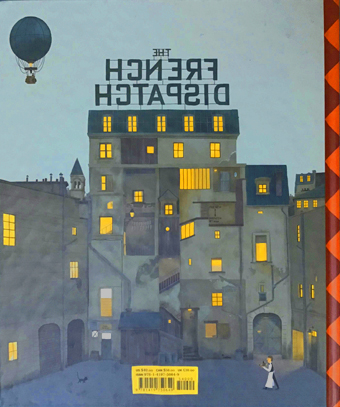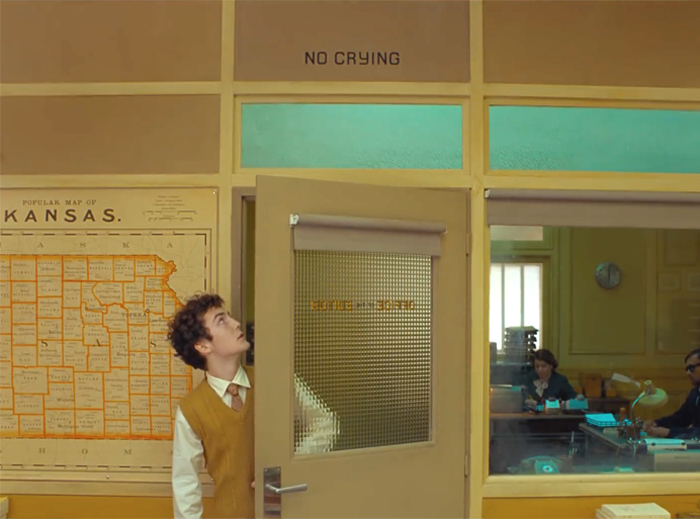Archive for August 2023
Another dispatch from Ennui-sur-Blasé
DB here:
Hardcore Wes Anderson admirers will be happy to learn of the latest entry in the series of massive auteur monographs devoted to the work of the director. After a synoptic volume, The Wes Anderson Collection, there followed one devoted to The Grand Budapest Hotel and another to Isle of Dogs. Now we have one on The French Dispatch of the Liberty, Kansas Evening Sun. Delayed a bit by Covid, it emerges as just as splendid as its predecessors.ƒteem
Matt Zoller Seitz, impresario of the series, has compiled all the materials we’ve come to expect. There are the usual frolicsome illustrations by Max Dalton. We get to roam through production documents, sketches, storyboards, and interviews with participants, including extras and peripheral contributors. Anderson’s appetite for material is endless, so we learn of layers of citations, shout-outs, and subterranean influences. Binding it all is Seitz’s commentary, both a narrative of the project’s development and an ongoing conversation with Anderson himself.
Seitz is not only a dynamic critic but an imaginative book-maker, with daring conceptions of design and illustration. His gifts are apparent not only in this series but in his nearly phantasmagoric compendium on Oliver Stone and in his more austere but no less forceful The Deadwood Bible. The Anderson enterprise began as a website, and each book has the centrifugal energy of a nest of hyperlinks, with new bits piling onto a single page.
Seitzian ingenuity also emerges in clever ways to evoke, if only as riffs, the obsessive, occasionally silly whimsy that drives the director and his characters. The first book in the series provided a word count for each chapter; the Grand Budapest Hotel volume assigns contributors the role of concierges (“The Society of the Crossed Pens”). In the spirit of a movie about a magazine, The French Dispatch entry includes a magazine, Fondu enchaîné (“Dissolve”). In this English-language feast of cinephilia several critics provide close considerations of the film. (Full disclosure: I’m one of those critics.) The expansive range of these essays nicely miniaturizes the whole book’s urge to explore anything, no matter how remote, that can illuminate the film and Anderson’s creative process.
In all, it’s a collection that I think will delight any Anderson admirer. It teems with the same energy that has animated his body of work for twenty-five years and counting. How fast that time has gone!
Thanks to Ben Adler for all his help on this and other projects.
Full disclosure #2: Matt has kindly co-dedicated the book to Kristin and me. We accept it with gratitude from a generous friend.
















